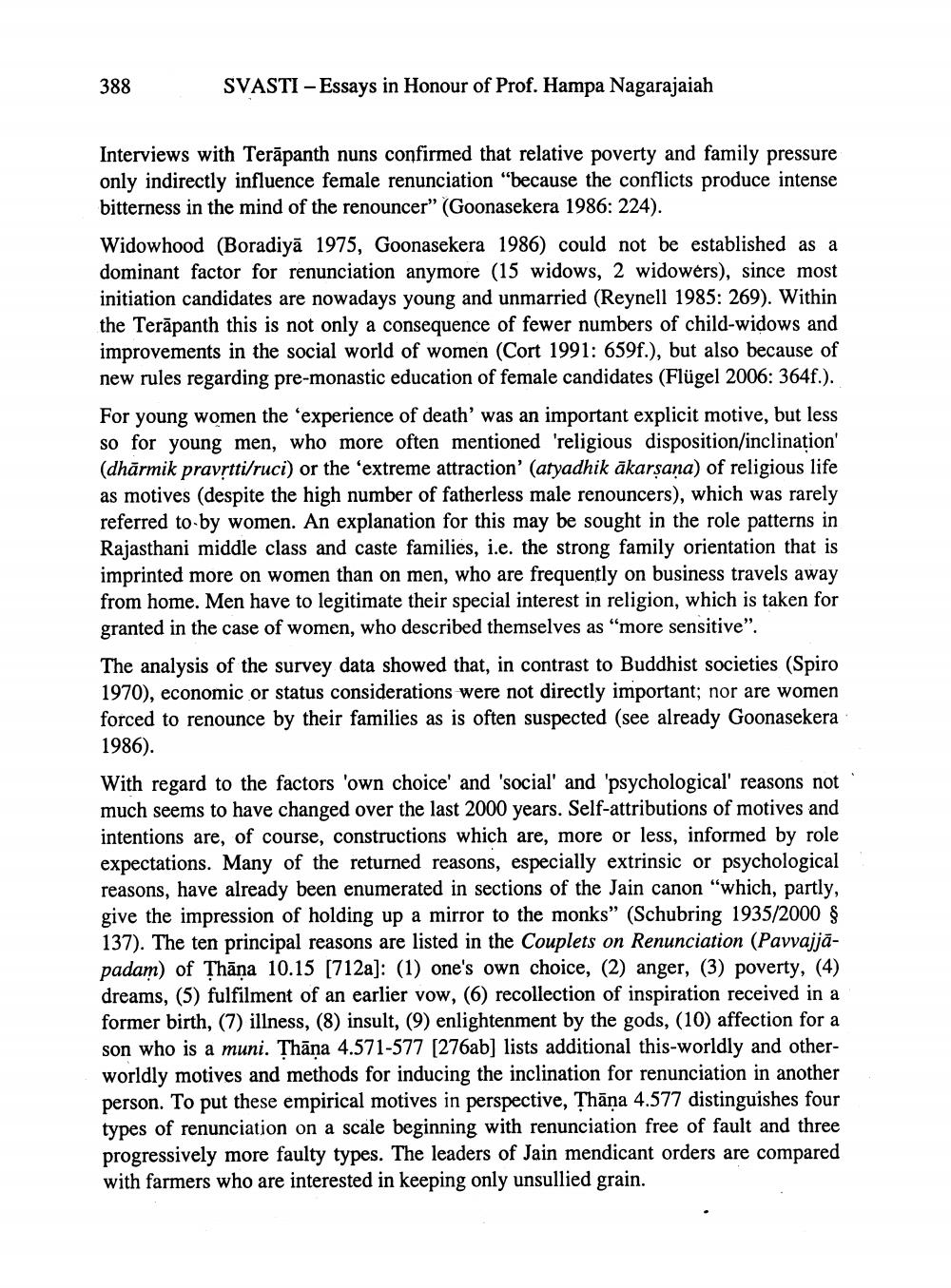________________
388
SVASTI -Essays in Honour of Prof. Hampa Nagarajaiah
Interviews with Terapanth nuns confirmed that relative poverty and family pressure only indirectly influence female renunciation "because the conflicts produce intense bitterness in the mind of the renouncer" (Goonasekera 1986: 224).
Widowhood (Boradiyā 1975, Goonasekera 1986) could not be established as a dominant factor for renunciation anymore (15 widows, 2 widowers), since most initiation candidates are nowadays young and unmarried (Reynell 1985: 269). Within the Terapanth this is not only a consequence of fewer numbers of child-widows and improvements in the social world of women (Cort 1991: 659f.), but also because of new rules regarding pre-monastic education of female candidates (Flügel 2006: 364f.). For young women the 'experience of death' was an important explicit motive, but less so for young men, who more often mentioned 'religious disposition/inclination' (dharmik pravṛtti/ruci) or the 'extreme attraction' (atyadhik äkarṣaṇa) of religious life as motives (despite the high number of fatherless male renouncers), which was rarely referred to by women. An explanation for this may be sought in the role patterns in Rajasthani middle class and caste families, i.e. the strong family orientation that is imprinted more on women than on men, who are frequently on business travels away from home. Men have to legitimate their special interest in religion, which is taken for granted in the case of women, who described themselves as "more sensitive".
The analysis of the survey data showed that, in contrast to Buddhist societies (Spiro 1970), economic or status considerations were not directly important; nor are women forced to renounce by their families as is often suspected (see already Goonasekera 1986).
With regard to the factors 'own choice' and 'social' and 'psychological' reasons not much seems to have changed over the last 2000 years. Self-attributions of motives and intentions are, of course, constructions which are, more or less, informed by role expectations. Many of the returned reasons, especially extrinsic or psychological reasons, have already been enumerated in sections of the Jain canon "which, partly, give the impression of holding up a mirror to the monks" (Schubring 1935/2000 § 137). The ten principal reasons are listed in the Couplets on Renunciation (Pavvajjäpadam) of Thana 10.15 [712a]: (1) one's own choice, (2) anger, (3) poverty, (4) dreams, (5) fulfilment of an earlier vow, (6) recollection of inspiration received in a former birth, (7) illness, (8) insult, (9) enlightenment by the gods, (10) affection for a son who is a muni. Thāna 4.571-577 [276ab] lists additional this-worldly and otherworldly motives and methods for inducing the inclination for renunciation in another person. To put these empirical motives in perspective, Thana 4.577 distinguishes four types of renunciation on a scale beginning with renunciation free of fault and three progressively more faulty types. The leaders of Jain mendicant orders are compared with farmers who are interested in keeping only unsullied grain.




